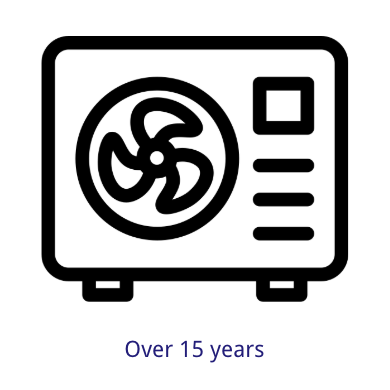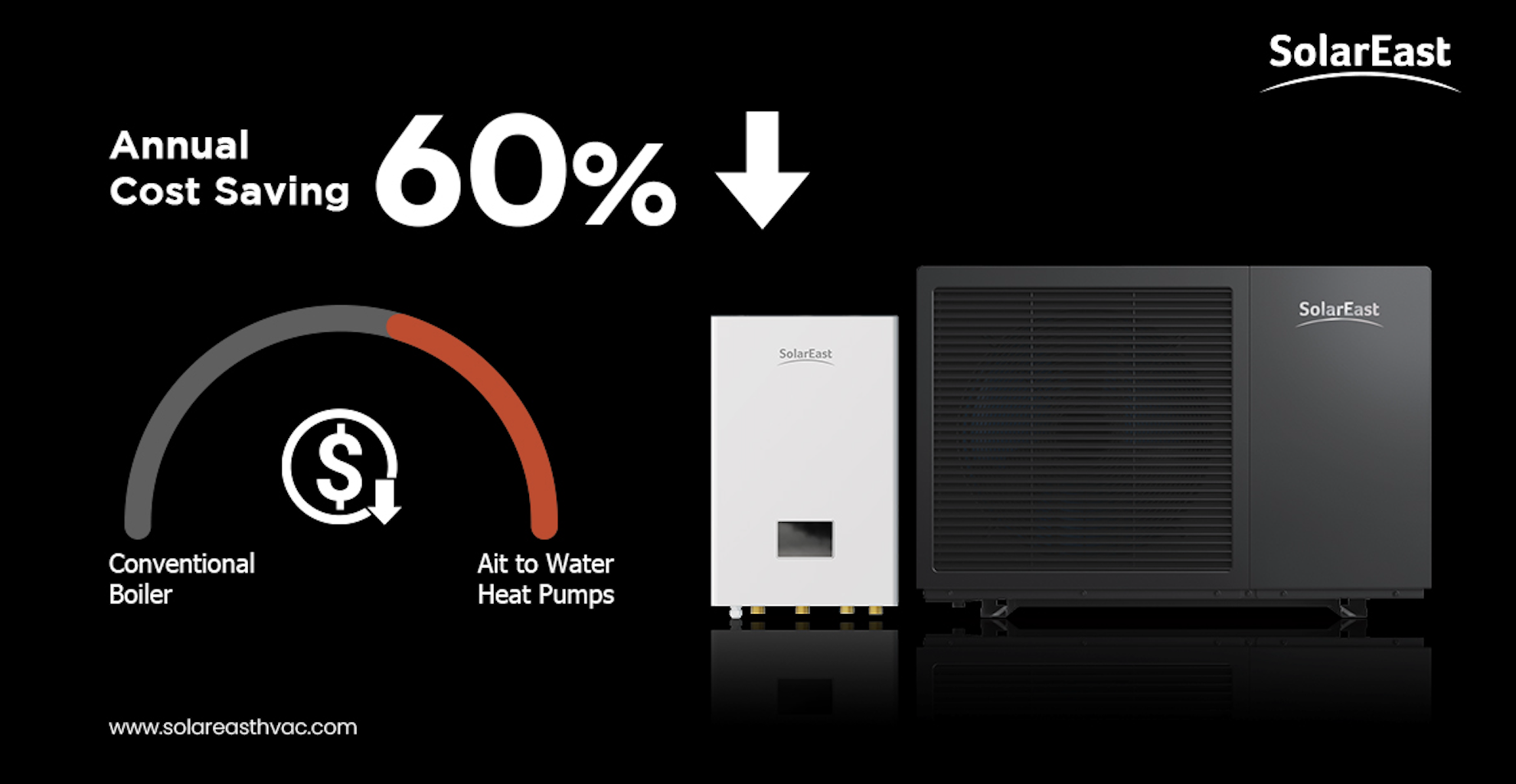







1. Understanding a Heat Pump’s Lifespan
3. Warning Signs You Need a Pump Replacement
3.1 Signs It's Time To Replace Your Heat Pump
4. Heat Pump Replacement Costs
5. Tips To Extend The Lifespan Of Your Heat Pump
5.1 Schedule regular maintenance
5.2 Replace air filters regularly
5.3 Keep the outdoor unit clear
5.4 Upgrade to a more efficient model

Most heat pumps can last around 10 to 15 years, but several factors affect that lifespan. If you maintain your system well and replace filters regularly, you could see even more years of reliable heating and cooling. Below, we’ll cover how a heat pump works, how to tell if yours needs replacing, and how much a new one might cost according to some popular online estimates.
Heat pumps are known for their efficiency and long-term savings. In areas where winter temperatures aren’t extremely harsh, they tend to be less expensive to operate than traditional furnaces. According to Angi, the cost for installation typically ranges from around $4,206 to $7,688, with the national average cost of a heat pump being approximately $5,947. However, each homeowner’s individual expense—and the corresponding energy savings—will vary based on factors such as home size, local climate, and the specific model installed.
A heat pump moves heat from one place to another. In the summer, it cools your home by pushing warm air outside. In the winter, it does the opposite and replaces your heat source, keeping your home comfortable.
Typical Lifespan: 10–15 years
Maintenance Matters: Changing your air filter and scheduling pump maintenance can extend service life.
Climate Factors: Extremely hot or cold climates can put more stress on the unit.
If you start noticing weak airflow, higher bills, or strange noises, it may be time to look into a pump replacement before you lose heat or cooling altogether.
People often compare heat pumps vs air conditioners. Both cool your home in summer, but a heat pump also replaces your heat source in winter. Here’s a quick breakdown:
| Feature | Heat Pump | Air Conditioner |
|
|
|
|
|
|
|
|
|
|
|
|
|
|
|
*heat pump vs air condition diagram
Before your system fails, it usually shows signs that your heat pump is struggling:

Hot air not reaching certain rooms

Frequent or odd noises during
cooling mode or heating cycles

Sudden rise in utility bills

Efficiency rating dropping over time

The unit nearing or passing 15 years
of age

Knowing when to replace your heat pump can save you from costly repairs and energy inefficiencies. Here are some common signs that it’s time for a replacement:
If your heat pump requires frequent repairs, it may be more cost-effective to replace it. Older models often break down more frequently, leading to higher repair bills.
When a heat pump is nearing the end of its life, it may struggle to maintain consistent temperatures. If you find that your home is unevenly heated or cooled, it might be time to consider a new unit.
Unusual noises such as grinding, squealing, or rattling can be signs of significant internal issues. In many cases, replacing the heat pump may be the best option to avoid more severe damage.
If you see these issues, it may be cheaper to invest in a pump replacement than to keep patching up an ageing system.
Brand and Size: Bigger homes or well-known brands may push costs higher.
Local Climate: Extreme weather can require a more powerful (and expensive) system.
Installation Complexity: If your ductwork is outdated, you might pay extra for repairs or upgrades.
Long-Term Savings: While a new unit can be pricey, an improved efficiency rating may lower monthly bills.
Gathering Quotes: Each home is different. Always check at least two or three local contractors for a fair
Ensuring your heat pump is inspected and serviced by a professional technician at least once a year can significantly prolong its life. Regular maintenance includes cleaning the evaporator and condenser coils, checking refrigerant levels, and inspecting electrical components.
Dirty air filters can restrict airflow and reduce the efficiency of your heat pump. Make sure to change your filters every 1-3 months depending on usage and air quality.
Ensure that the outdoor unit is free from debris, leaves, and snow to allow for proper airflow. This helps prevent strain on the system and can extend its lifespan.
If your heat pump is more than 10 years old, you might benefit from upgrading to a newer, more energy-efficient model from Daikin, Bosch, or Mitsubishi Electric, which can offer better performance and longer lifespan.
A heat pump typically lasts around 15 years, but regular pump maintenance and timely filter changes can help you get the most from your investment. When you notice warning signs—like uneven cooled air or a drop in efficiency rating—it’s wise to consider a pump replacement.
By choosing the right heat pump system for your foot home and staying on top of upkeep, you’ll enjoy heating and cooling comfort all year long. Whether you’re aiming for a single unit that can cool your home in summer and replace your heat in winter, or you just need better energy efficient equipment, a well-chosen heat pump is a smart move.

At SolarEast, we are committed to delivering heat pumps that are built to last. Thanks to our advanced manufacturing processes, high-quality components, and strict quality control standards, SolarEast heat pumps offer a superior lifespan of a heat pump compared to many alternatives in the market. Our products are engineered for long-term reliability, ensuring stable performance even under demanding conditions. To provide additional peace of mind, every SolarEast heat pump comes with a standard two-year warranty. Choosing SolarEast means investing in a solution that not only meets your heating and cooling needs today but continues to perform efficiently for many years to come.

